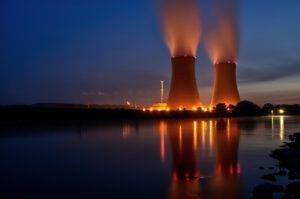By Anna Peel. Originally published at ValueWalk.

S&P Global Ratings’ most recent report finds that after decades of opposition by governments and public unease after the Fukushima disaster in 2011, Europe may be changing its mind about nuclear energy – a recognised technology that can contribute to decarbonisation as well as the stability and affordability of energy supply. As gas and power prices skyrocket in Europe and calls to consider new types of low-carbon energy grow louder, a nuclear renaissance would offer stable, carbon free baseload generation in a more electrified economy, albeit with complications.
Q4 2021 hedge fund letters, conferences and more
Europe’s Return To Nuclear Power
- France recently announced the resumption of new nuclear builds, for the first time in 40 years, to address the country’s decarbonisation targets. In parallel, the UK government introduced legislation establishing a funding scheme based on regulated asset base (RAB) for new nuclear projects, and made public its decision to invest up to £1.7 billion to enable a large-scale nuclear project.
- The cost of new nuclear builds in Europe is significantly higher than in other countries, such as China or Russia. Essentially all projects in Europe face delays and significant cost escalations, which contrasts with China and Russia, where serial newbuilds and local vertically integrated supply chains lead to significantly lower nuclear construction costs.
- Europe urgently needs to find a solution to replace its sizable and aging nuclear fleet, but over a decade of technical, political, and regulatory woes have undermined investment decisions for new nuclear projects.
- New nuclear projects in Europe will not happen without significant and comprehensive government support, which could include a dedicated framework, an accommodating taxonomy, and state funding. Government support could promote education, research and development.
The return to nuclear power will be neither quick nor easy, given it relies on difficult political decisions and large financial outlays, public investment, and management of complex technical advances. What’s more, some European countries – notably Germany – have already decided to phase out nuclear and are unlikely to change their stance. However, given the severity of the current energy crisis, European politicians could be prompted to reconsider the role of nuclear.
Updated on
Sign up for ValueWalk’s free newsletter here.



